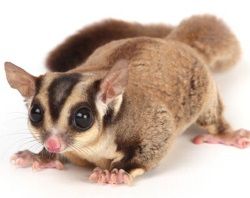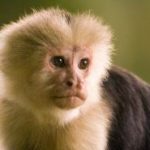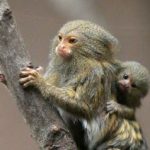I have been having a hard time finding any information regarding the import of “exotic” pets to the Cayman Islands. I have searched the agriculture documentation but was unable to find information regarding primates (specifically marmoset, capuchin and sugar gliders) and also miniature pigs. My kids have recently visited a family in the USA which has had these as pets and fell in love with them. I would like to be able to get one for the children. Please let me know if you have any information regarding this.
Auntie’s answer: While admittedly I do not understand your enthusiasm for sharing your home with primates (though, for the sake of clarity, sugar gliders are actually marsupials), I nonetheless passed your query to the Department of Agriculture (DoA), which provided me with a very detailed response. The answer that came back is that you cannot bring those exotic creatures into the Cayman Islands, but you might have a shot at the miniature pig.
The Animals Law, Section 4 prohibits importing animals directly from countries in Asia, Africa or Central and South America, without listing a specific creature, but that would include the primates mentioned.
The DoA official explained that means even a cow, pig or dog from those countries could not be imported into Cayman, but “a type of animal that is native to one of those continents/regions could be considered for importation if it was originating from a region from which the importation of that type of animal is allowed”.
I only include that to offer a comprehensive answer because the official then added that the marmoset, capuchin and sugar glider are “exotic and alien species to the Cayman Islands” and importing any of them from areas that are allowed would require you to apply to the National Conservation Council under the National Conservation Law, 2013.
Section 35 (2) of that law requires any person who wants to “introduce or release” an alien species into the Cayman Islands to apply for a permit to the National Conservation Council. In addition, under Section 5 (1) of the Animals Law (2015 Revision), you would also need to apply to the DoA for a permit and once that application is submitted, “a risk assessment would have to be undertaken”.
The official added that when looking at the application, “some factors that would have to considered would be the fact that in the case of primates, due to the similarities to humans in the disease that they can carry and transmit, this makes them an extremely high risk/danger as potential reservoirs of zoonotic disease. In many countries where these animals are kept as pets, it is my understanding that a large number of private vets will not treat them due to the potential risk to themselves.
“With regards to sugar gliders, these are insectivores/omnivores and would pose a very significant threat to local insect and plant populations.”
Let’s now turn our attention to pigs, where there seems to be an avenue for you. There is actually a document that specifically addresses the importation of pigs, aptly called Conditions Governing the Importation of Pigs into the Cayman Islands. The first point says, “No pig shall be imported, except such pig is imported directly from Canada, CARICOM States, Great Britain, or the United States of America.”
You also need to know, though, that every pig brought in needs to have an import permit issued by the DoA. There are other requirements including those dealing with the health of the pig to ensure it doesn’t carry any infectious diseases.
At this point I feel I have given you enough information to start the process and, in deference to the readers who are not that excited about the prospect of pigs as pets, I will leave you to go through the document to determine your exact course of action. I hope whatever you decide, your children enjoy their new pet.






Monkeys are not cute, they are nasty and disgusting creatures that carry diseases. They masturbate anywhere they damn well feel like it, they scratch, they bite and they’ll throw sh** at you. Get 3 or 4, I’d recommend, they’ll probably fit right in with your special little snowflakes.
Thank heavens for Ask Auntie – hello can you say green iguanas.
Like we need to import any other problems!!! Really?!?!?!? Seriously?!?!?!? Sorry but you do people not realise they don’t need to give their children everything they ask for?
First World peoples problems…
Sugar Gliders are nocturnal!!
How would you like to be forced to live a life that is not normal to you?
Until the humane scociety has empty cages, no pets should be allowed onto our shores (excisting family pets excluded). It’s really not rocket science.
Have you thought about what you are going to do when these animals get sick,is there a suitable vet on the island that can take care of them. From experience I can tell you these animals cannot be attended to by an ordinary vet, it must be an exotic vet who has had specialist training and up until last year when my rabbit 8 1/2 years old rabbit died there were none. Yes, a bunny rabbit is medically classified as an exotic creature, I had to settle for an ordinary vet who had a tiny bit of experience with exotic creatures. Towards the end of his life when he had a bad fall and she wasn’t sure what to do she had to consult with a exotic vet in US. Not ideal but was better than nothing. I can tell you even a miniature pig will grow to a heavy weight, about that of a med size dog. They needs lots of exercise and mental stimulation. Unless you have the time; dedication, money, space in your home and a whole lot of other things they need for years to come don”t even consider getting a mini pig let alone those other creatures. Did you know even a guinea pig is classified as an exotic pet; they can be medically costly and hard to treat if they get sick.
Neither is a rabbit a child’ pet; but rather an adult pet. Please don”t put yourself through hardship of getting those “rare” ultra exotic creatures you mention, the animal will suffer and so will you because you won” t be able take care of them properly.
Dear Jesus! Why is it that people think anything cute can be caged and made a pet?!! Just because they are captive bred does not make it right! Adopt a dog or cat, but only if you are going to take them when you leave, because they are for life, not for until you get tired of them. Leave the marsupials and primates alone!
Having growing up, yes I said “growing”- with 2 capuchins in my house hold. I strongly recommend you not go down this road. These animals are children. Literally. Needy and mischievous. Stress inducing to say the most It takes a full time handler to properly train and handle a capuchin and I will go as far to say any primate. They have a wide range of emotions and love deeply They are not “cage” pets They are children. Very agile. Very shameless. Very intelligent Very michevious children. I hope to never see primates in Cayman
Kids and teens have wondering interests and their own social life (that changes as they grow). Most cannot (without parental help/guidance + encouragement) take care of pets, including dogs and cats. Much less exotic, fragile ones.
As you may wonder, yes, the novelty will wear off in no-time and then what will you have? An exotic pet that doesn’t get the natural care it needs and deserves. Except…maybe from you the parent(s).
Go to the Humane Society and take a look at real pets that would love a home to call their own. Warm your heart with a woof!? Or a meow!?
OK this is going to sound judgmental but here we go.
The original question seems consumed in such naivety that I would be worried both for the wellbeing of the creature they import and the likely outcome for teh environment once their (growing) kids get bored with eg the (even more quickly growing) miniature pig or whatever and ….
As others have said, why not turn your children’s hearts to needy local homeless pets rather than exotic – dare I say it – ‘trophy’ pets to show off to their mates and then get bored with.
For God’s sweet sake. People with too much money and a bunch of entitled brats. Go to the humane society and get a dog. Get a cat. Catch an iguana and give them that. Or better yet, export yourself.
With all due respect for the family wishing to import an exotic animal, don’t. Any animal not from this region can pose a serious threat to indigenous flora and fauna. Not to mention dragging in an animal not from this region will also not be very happy in a very strange habitat such as ours. Leave them where they belong. Go for the pig if you have to but that too can pose a serious health risk, for the pig that is. Go to the web and inform yourself properly before you go anywhere near importing pretty much anything that does not belong here. Thank you!!
May I please encourage you to adopt a needy cat or dog from the Humane Society instead of supporting the cruel trade in these exotic animals.
These animals are captive bred in the United States. There is nothing inherently cruel about the trade.
it just perpetuates the cycle of the exotic pet trade. not okay. never okay.
I hope the applicant is denied permission by the D.O.E & Agriculture on all fronts . Sugar gliders are a specialized & protected species in particular , as are many of the smaller primates..
This is why we have thousands of iguanas now. Yes adopt a cat or dog or both.
When in Rome do as the Romans do.
Green iguanas were one considered exotic.
Adopt a green iguana if you want an exotic pet. There’s about a thousand on my land, please come and help yourself.
You are not from around this neck of the woods are you?…
Oh please!! We have enough problems with iguanas, lion fish , stray chickens, stray dogs, stray cats, and you want to introduce another problem. Take your kids to the humane kennels and help to feed and walk the dogs and cats they have there. If you live anyway near to the various places on island that the feline friends remove cats, get them spayed and reintroduce back to the areas you can start feeding one or two of the cats and before long they will become part of your family. Leave glider monkeys and exotic pigs in their habitats.
Maybe not the fish, but the introduction of a large exotic predator might solve the stray dog, chicken, iguana, cat population.
Justsayin.
Just saying: how about not getting animals that you won’t care for. Stray dogs, cats, iguana and chickens are all a people problem: incompetent people not caring for their animals. None of them came here by themselves. People got them and let them go. If I could afford an island: I would buy four: one for each animal. And yes, the dogs and cats would be fixed. The roosters would be separated from the hens so they would be used for eggs. I don’t know much about iguanas so I would have to read up on how to handle them. No animal would be culled for culling sake.